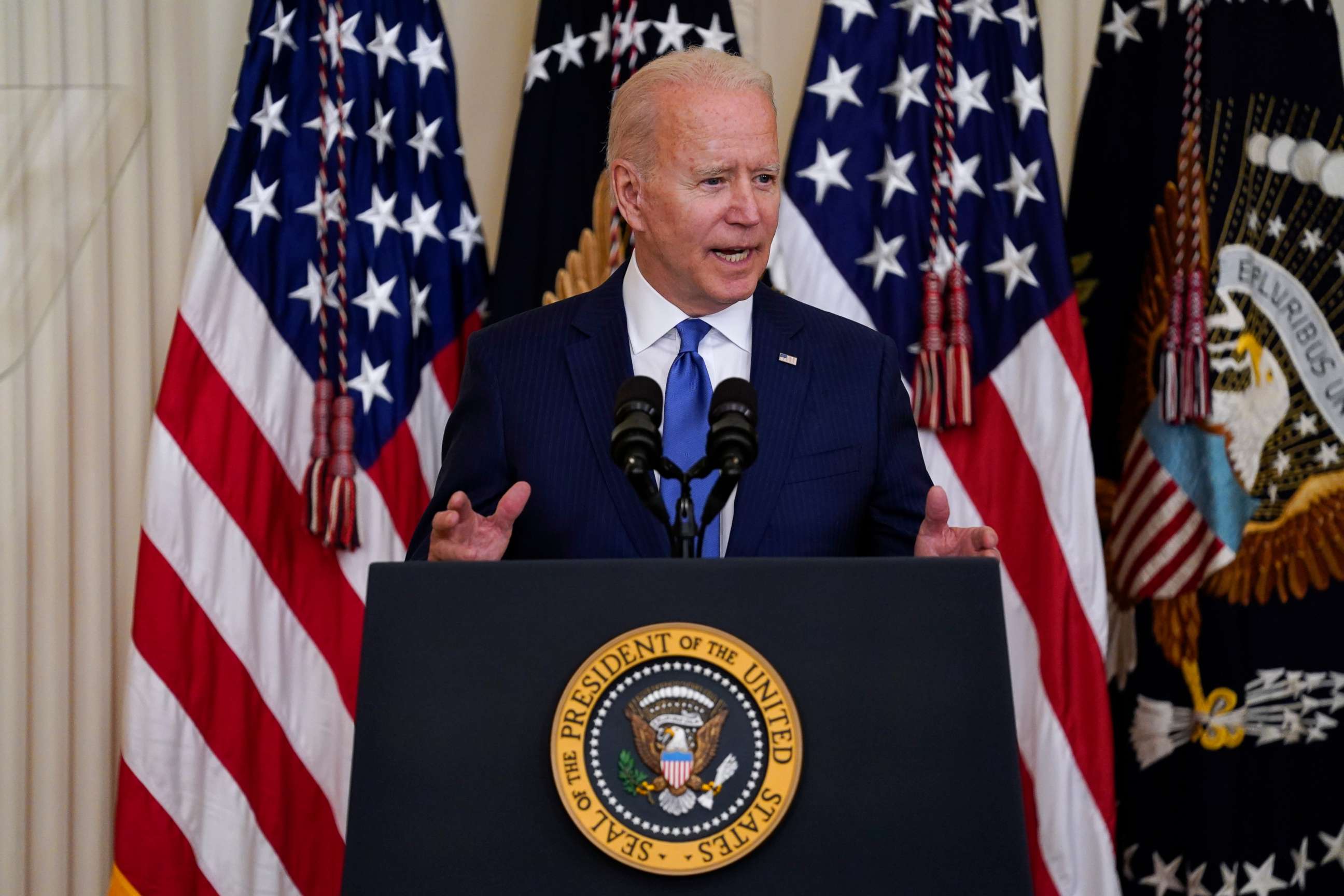Biden orders airstrikes on Iran-backed militias near Iraq-Syria border in response to UAV attacks
The U.S. said the strikes were "to protect U.S. personnel in Iraq."
President Joe Biden ordered airstrikes this weekend on Iran-backed militias near the Iraq-Syria border in response to unmanned aerial vehicle attacks, according to Pentagon Press Secretary John Kirby.
"At President Biden's direction, U.S. military forces earlier this evening conducted defensive precision airstrikes against facilities used by Iran-backed militia groups in the Iraq-Syria border region," Kirby said in a statement Sunday. "The targets were selected because these facilities are utilized by Iran-backed militias that are engaged in unmanned aerial vehicle (UAV) attacks against U.S. personnel and facilities in Iraq."
Kirby said the U.S. acted within its legal rights and said the airstrikes were a matter of self-defense.
"The strikes were both necessary to address the threat and appropriately limited in scope," Kirby's statement said. "As a matter of domestic law, the President took this action pursuant to his Article II authority to protect U.S. personnel in Iraq."
U.S. Air Force F-15s and F-16s from U.S. bases in the Central Command region carried out Sunday's airstrikes with precision-guided munitions at about 6 p.m. ET, a defense official told ABC News. The official said it's too early to know if there were any militia or civilian casualties.
The sites hit by the U.S. were determined to have had command, control and logistics capabilities, the official said.

A defense official said this is the second such attack ordered under the Biden administration, the last being on Feb. 25 against Iranian-backed militia groups in response to rocket attacks.
Since April, there have been five "one-way UAV attacks," as well as "ongoing rocket attacks," on U.S. and coalition facilities in the region, according to Pentagon spokesperson Cmdr. Jessica McNulty
There were no U.S. or coalition casualties from those five attacks, a defense official confirmed.
“The strikes were necessary, appropriate, and deliberate action designed to limit the risk of escalation," McNulty said in a statement. "Through these and other means, we seek to make clear to Iran and Iran-backed militia groups that there will be serious consequences if they continue to attack, or to arm, fund, and train militia groups that attack our people. We will take necessary and appropriate measures to defend U.S. personnel, partners, and allies in the region.”
As Biden returned to the White House Sunday from Camp David, the president did not answer questions shouted from reporters about the airstrikes.
This is a developing story. Please check back for updates.
ABC News' Molly Nagle contributed to this report.




